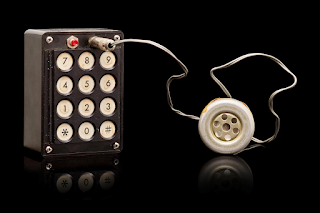How social networks have influenced real-life commmunication
How social networks have influenced real-life commmunication
It is undeniable that social media has changed the way we communicate with each other. From sharing our thoughts and photos to planning a party, most people nowadays organise their social lives through some form of technology-based engagement. But, how has this shift from more physical interaction actually affected the way we talk to each other?
Social networks have changed the way we interact, mainly the way we now lack some of our social skills. More people are becoming incapable of carrying on a normal conversation or interacting with people in person because of the social media addiction.
Social networks are becoming one of the primary ways we communicate. People are obsessed with checking their smartphone every minute than engaging in conversation with their friend or loved one. Social media and technology are controversial. It’s wonderful to have and can be really helpful, but it also distracts us to the point of being unconscious to everything else going on.
People, commuicating using social media aren’t necessarily spelling things incorrectly, they are speaking a new language entirely. But sometimes they become absurd and unreadable. For example:
-Wyd rn?
-Bau, btw tysm for dinner yesterday!
Or in normal language it would be like:
-What are you doing right now?
-Business as usual, by the way thank you so much for dinner yesterday!
Language is constantly evolving. It’s stupid to think that the language of social media isn’t effecting the way we use English in day-to-day life.
A whole lot of words originating from social media have become so common that they’ve now slipped into popular usage, and we don’t even realize it. A few interesting words that have their origins in technology are troll, hashtag, tweet. Even some acronyms have made it into everyday speech as words, for example 'lol'.
‘Friended’ and ‘unfriended’ are two words that have been given a new meaning due to their usage online. The word ‘friend’ and ‘befriend’ is from Old English originating in the 13th Century, but it has been given an entirely new meaning thanks to Facebook. ‘Like’ and ‘viral’ are popular examples of words that have had their meaning redefined by social media.
There are even examples of online brands becoming so powerful that words have slid into the English language based on them. ‘Google’ is the world’s leading search engine and it has become so universal in its usage that the phrase ‘Google it’(or 'guugeldama' in Estonian) has mostly replaced the phrase ‘search’ in common speech. There are instances of this lifted directly from social media too; ‘tweet it’ means writing a message using Twitter, but has essentially come to mean ‘share it’.
References
- HAS SOCIAL MEDIA CHANGED THE WAY WE SPEAK AND WRITE ENGLISH?https://englishlive.ef.com/blog/english-in-the-real-world/has-social-media-changed-the-way-we-speak-and-write-english/
- How Social Media Has Changed How We Communicate. https://fowmedia.com/social-media-changed-communicate/#:~:text=Social%20media%20networks%20allow%20us,of%20your%20freedom%20of%20speech.



Comments
Post a Comment